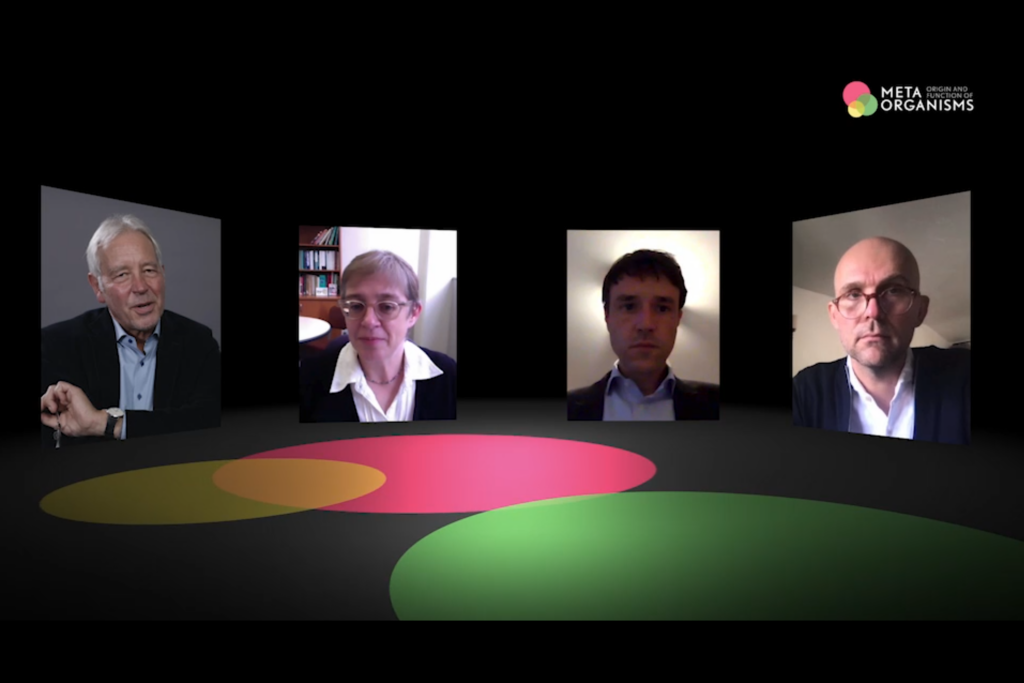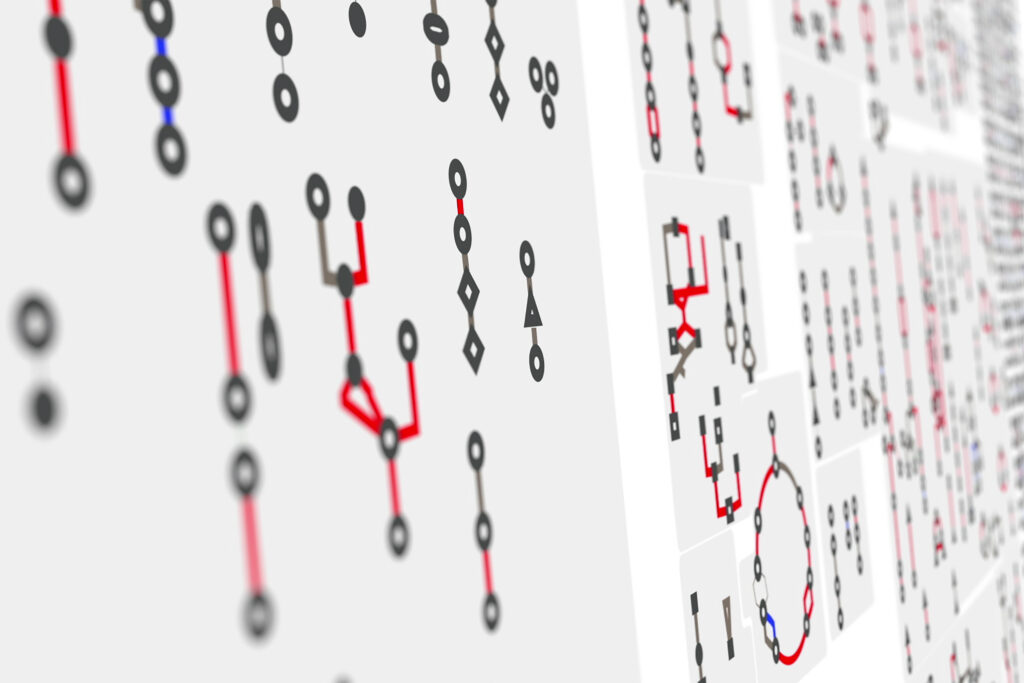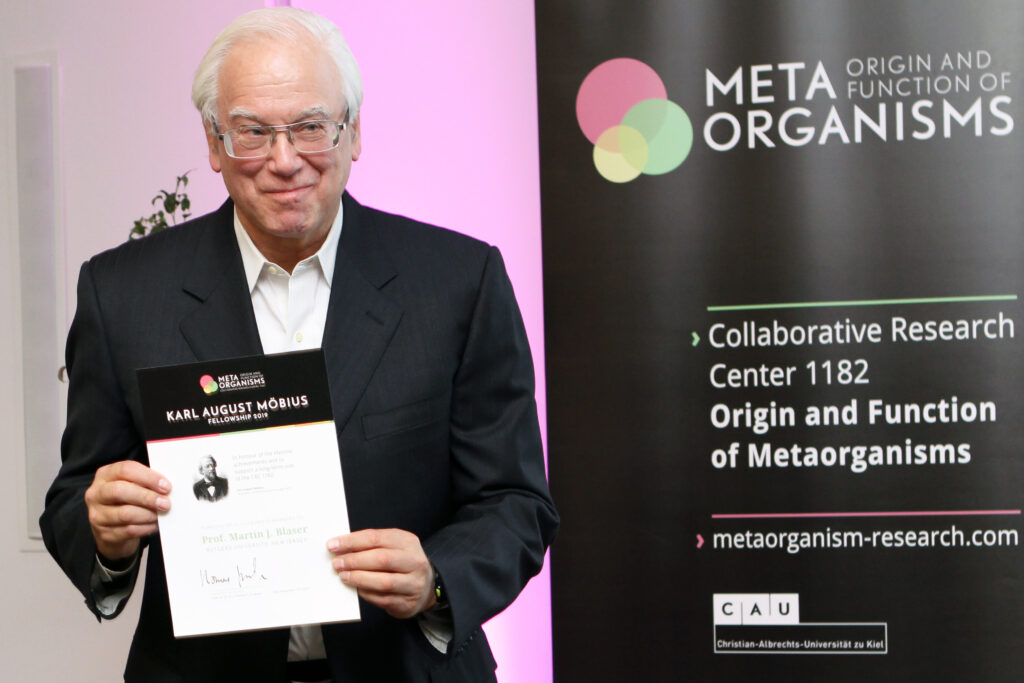We are many: Thinking the metaorganism beyond disciplines
New digital discussion format of the CRC 1182 “Origin and Function of Metaorganisms” at Kiel University reflects broader significance of research field
Unusual times call for new ideas of collaboration. The study of the metaorganism has long since developed into research field that involves not only the natural sciences but also the social sciences and the humanities. What does the interaction of host organisms with their symbiotic microorganisms mean for our notion of “self” and the definition of the individual? Do humans need to be rethought now that we know that they cannot function without symbiotic partners? What are the implications of anthropogenic global change for the concept of the metaorganism?
In order to further develop such and similar questions, new formats of interdisciplinary communication are needed in times of travel and contact restrictions. The spokesperson of the Collaborative Research Center (CRC) 1182 “Origin and Function of Metaorganisms” at Kiel University, Professor Thomas Bosch, therefore recently invited to a virtual panel discussion “Integrating Biological, Philosophical and Social Sciences”. In this new format, Bosch discussed the cross-disciplinary significance of the metaorganism concept with historian Professor Hannah Landecker from the University of California, Los Angeles, philosopher Professor Thomas Pradeu from the University of Bordeaux, and anthropologist Professor Tobias Rees from the Berggruen Institute.
Interdisciplinary Discussion “Integrating Biological, Philosophical and Social Sciences”
The metaorganism concept beyond biology
Microbes carry out the bulk of biological activities on the planet. They were the earth’s first lifeforms, and lie at the base of every major transition to new forms of life. The human body is composed of 1.3 times more microorganisms than body cells. This community of microorganisms and body, the metaorganism, influences how we digest our food, how active our immune system is, as well as whether we tend to be more anxious or curious. Contemporary microbiome research shows how microbes and microbiology can inform broader philosophical discussions about human nature, individuality, identity, selfhood, and mind, among other topics.
Thus, metaorganism research is gaining an importance far beyond the natural sciences. It has also reached the social, historical and philosophical sciences. Their concepts might also have to be reconsidered in light of the far-reaching significance of the close cooperation of body and microorganisms: “It is time to incorporate the thoughts of experts from the social and historical sciences and philosophy into our efforts to understand the multi-layered implications of the metaorganism concept beyond biological and medical aspects,” is how Bosch describes the impulse for the start of the new series of events in CRC 1182.
“The rise of concepts in the twentieth century like the separation of the body into systems have become supernaturalized. We have come to think that they transparently represent the world”, historian Landecker points out. “As we shift into the realization that there are all kinds of entities that we have not noticed before, it is important to practice reflexivity about those concepts and where they have come from”, Landecker continues.
“My work is revolving around the inadequacies of current disciplines. To me, the term metaorganism is happily imprecise,” said Rees, describing his perception of the current paradigm shift. “It is an indicator that we need to revise several of the concepts we took for granted as true. This is an individual, this is a self, this is an organism, and this is how it is set apart from its environment,” Rees continues.
“It is possible that metaorganisms exist as such, this would be entities in nature. Metaorganisms might not necessarily exist as such but they would still be useful entities to think about biological interactions”, said philosopher Pradeu, describing how biological concepts are evolving. “Big changes happen when people disagree with underlying assumption of the community. This is extremely productive if your aim is to change science – not just to do science,” Pradeu said.
Understanding how science evolves
This thought-provoking discussion from the various perspectives of the interdisciplinary panel is explicitly not just aimed at an audience of experts. The discussion event is also available as a recording to the interested public, who can be inspired by the reflections on the multi-layered interconnections of novel perspectives in the life sciences with other sciences but also with society at large. With this and other formats, the Kiel CRC 1182 would like to take advantage of the opportunities offered by digitization in order to continue to permit such important scientific exchange on the one hand. On the other hand, a platform is to be created that also allows the public to follow the scientific discourse and gain insights into the further development of the life sciences and the associated effects on society. Accordingly, the researchers of the CRC 1182 are planning further events in the future that will tie in with the new format.
Contact:
Prof. Thomas Bosch
Spokesperson CRC 1182 “Origin and Function of Metaorganisms”, Kiel University:
Phone: +49 (0) 431-880-4170
Email: tbosch@zoologie.uni-kiel.de
More information:
Professor Hannah Landecker,
Department of Sociology and the Institute for Society and Genetics, UCLA:
socgen.ucla.edu/people/hannah-landecker/
Professor Thomas Pradeu,
Philosophy of Science, University of Bordeaux:
www.immuconcept.org/team_member/thomas-pradeu/
Professor Tobias Rees,
Director of the Program “Transformations of the Human”,
Berggruen Institute, Los Angeles:
www.berggruen.org/people/tobias-rees/
Talks by Hannah Landecker and Thomas Pradeu at the CRC 1182:
https://youtu.be/xC2g2P0Ka1o
https://youtu.be/8Qez_4fWTMc






